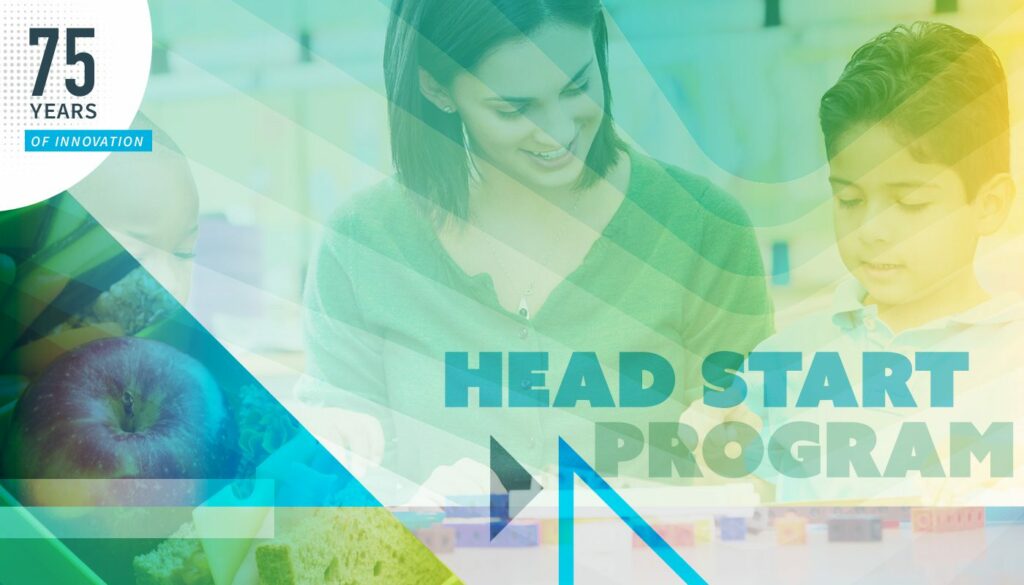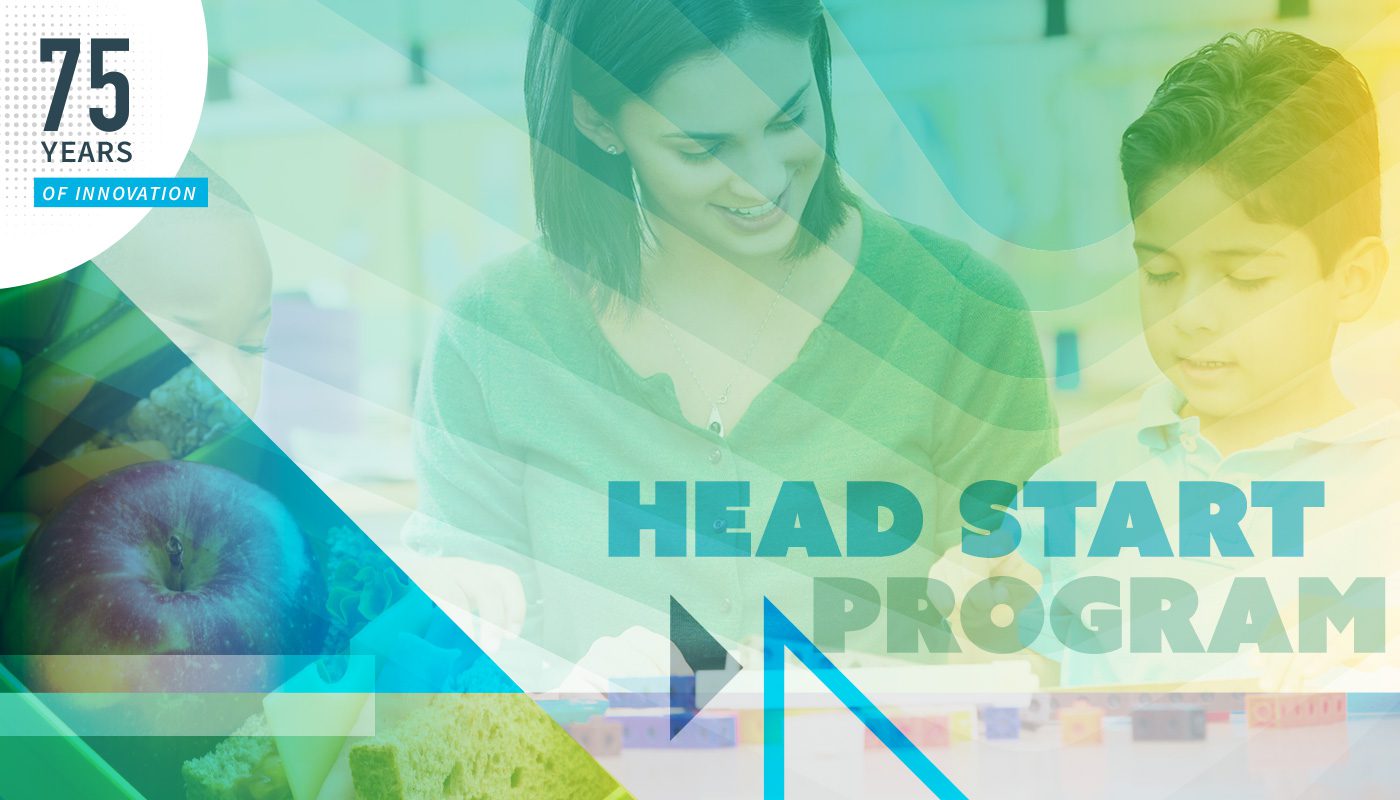The 75 Years of Innovation series highlights the groundbreaking innovations spanning from SRI’s founding in 1946 to today. Each week, SRI will release an innovation, leading up to its 75th anniversary in November 2021.

The delivery of a rich and resourceful education program for low-income and disadvantaged children
Getting a head start for all with a good education: SRI’s role in bringing education to everyone
Everyone deserves access to education. In 1948, the United Nations published its “Universal Declaration of Human Rights,” which states:
Everyone has the right to education. […] Education shall be directed to the full development of the human personality and to the strengthening of respect for human rights and fundamental freedoms.
In 1969, SRI International helped research and develop the Head Start educational program, which the U.S. government created in 1965. This program is one of the longest-running efforts to address systemic poverty in the U.S. and is still used today to promote school-readiness in low-income children.
An early head start in education and life
A good education is a vital element of a coherent and fair society. The future health, wealth and happiness of an individual are intrinsically linked to a robust and early start in education. Delivering an effective education program across all strata of society, however, is not easy. Children come from many different backgrounds, have varying abilities and many have disabilities that affect the delivery and efficacy of educational programs.
In 1964, the U.S. government asked experts in child development to look at ways to improve education for younger children from disadvantaged backgrounds. The goal was to break the repeating cycle of poverty by delivering effective routes into education, boosting opportunities for those from lower-income families. The resulting program, called “Project Head Start,” began as an eight-week summer school. In 1969, the Head Start program came under the governance of the Office of Child Development in the U.S. Department of Health, Education, and Welfare, before being established as the Office of Head Start.
The educational experts at SRI International provided important research capabilities to develop and expand the Head Start program. From 1969–72, SRI International carried out testing and data collection in the field, emphasizing the second and third years of early education. The subsequent analysis of the results provided important feedback to improve the Head Start program.
Head Start is tailored to the specifics of a child’s environment and reflects a family’s ethnic and cultural heritage. Along with educational activities, children in Head Start programs are entitled to free medical, dental and mental health evaluations. The program also provides healthy meals and snacks. Families are encouraged to take an active part in their children’s early learning. The Head Start program has been quite successful, with one recent study by Haan and Leuven (2019) concluding that the program demonstrated a “positive and statistically significant effect on years of education and wage income.”
Soon after the eight-week proof-of-concept, Head Start became a full-year program. Over time, the program expanded to include cognitive, academic and health programs. Head Start has continued ever since. Now in its fifth decade, the program was expanded again in 1995 to include Early Head Start (EHS), focusing on supporting infants and toddlers.
From 1969 to 1975, SRI’s assessment and in-field research contribution to the Head Start program resulted in a ground-breaking methodology that has since been widely replicated in the U.S. and abroad.
Education for all
Since its inception, Head Start has helped more than 35 million children and their families. In 2017, Head Start reached out to over one million children and pregnant women across the USA. A 2013 study by Love et al. found that EHS programs made a significant difference, stating that “benefits in language, behavior, and parenting were associated primarily with EHS.”
A positive educational experience is important for future individual and family life. SRI International continues to provide support in research and development of education in its Early Childhood Program, supporting federal and local governments, as well as educational foundations and private clients. Recent achievements include a partnership with the Education Development Center (EDC), involving a five-year evaluation of the Corporation for Public Broadcasting’s (CPB) Ready to Learn initiative. This study considered how public media materials can help low-income preschoolers develop key early math skills. SRI also works with the Erikson Institute on Early Math Collaborative, an NSF-funded project that aims to adapt successful early math professional development programs for use in Head Start. As part of this, Erikson and SRI researchers are documenting the specific needs and constraints of Head Start programs, adapting the program in partnership with Head Start educators, evaluating program implementation and early math outcomes.
A good education is not just about the individual, and SRI International recognizes that a good education is about more than just learning. A good start in education has a positive holistic impact on society. A quote from the National Head Start Association (NHSA) sums up the importance of delivering a good education for all: “Head Start is rooted in the belief that every child can succeed in school and life. Ending injustice, racism, and bias is fundamental to delivering on this promise.”
SRI International is proud to be part of the continuing success of the Head Start program.
Resources
United Nations, Universal Declaration of Human Rights: https://www.un.org/en/universal-declaration-human-rights/
United States Census: https://www.census.gov/library/publications/2020/demo/p60-270.html
Our World in Data: https://ourworldindata.org/global-education
De Haan, Monique; Leuven, Edwin (September 3, 2019). “Head Start and the Distribution of Long-Term Education and Labor Market Outcomes.” Journal of Labor Economics. 38(3): 727–765
U.S. Department of Health & Human Services, Head Start: https://eclkc.ohs.acf.hhs.gov/about-us/article/head-start-program-facts-fiscal-year-2017
Love JM, Chazan-Cohen R, Raikes H, Brooks-Gunn J. What makes a difference: Early Head Start evaluation findings in a developmental context. Monogr Soc Res Child Dev. 2013 Feb;78(1):vii-viii, 1–173. doi: 10.1111/j.1540–5834.2012.00699.x. PMID: 23425422.
SRI International, Early Childhood Program: https://www.sri.com/education-learning/research-field/early-learning/
Ready to Learn initiative: http://pbskids.org/readytolearn
An Annotated Bibliography of the Head Start Research Since 1965: Head Start Evaluation, Synthesis and Utilization Project. United States: U.S. Department Health and Human Services, Office of Human Development Services, Administration for Children, Youth and Families, Head Start Bureau, 1985.
NHSA: https://www.nhsa.org/our-work/current-initiatives/diversity-equity-and-inclusion/



